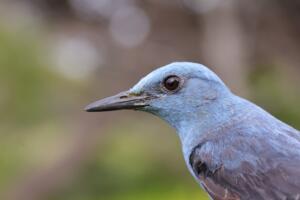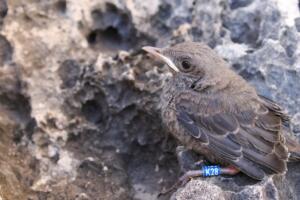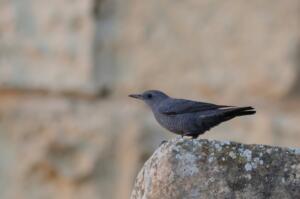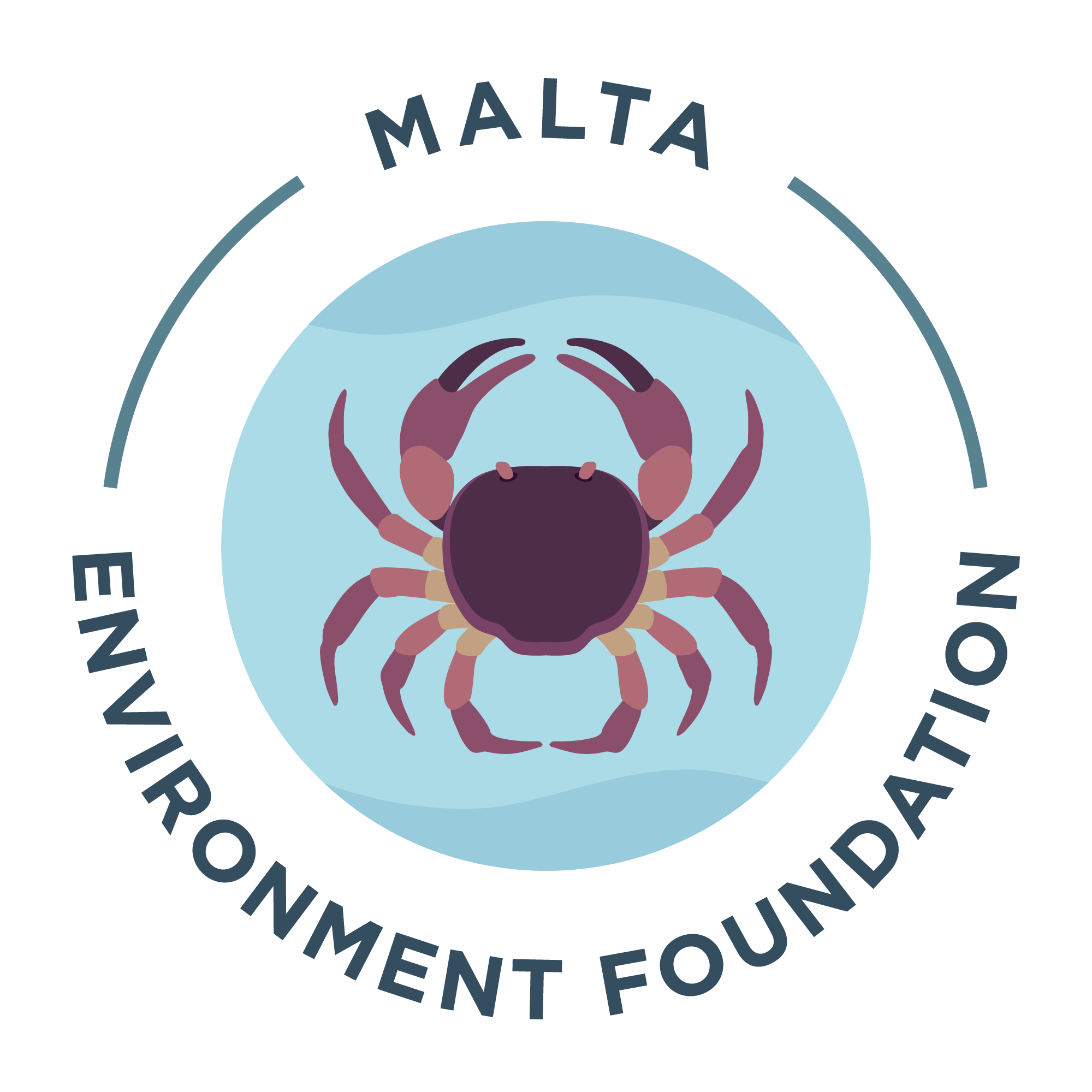
Grants
Community Agency & Action
Merilli Malta
€10,000 awarded
Grantees: Dr Ben Metzger & Dr Marie Claire Gatt
Project duration: June 2025 – July 2027
The Challenge
The Blue Rock Thrush (Merill, Monticola solitarius) is Malta’s national bird. It typically nests along coastal cliffs and in quiet valleys between March and July, but as human activity continues to encroach on wild spaces and habitats are becoming increasingly fragmented, the species has begun breeding in urban areas and nesting on buildings that mimic its natural rocky homes.
Malta, a small island in the heart of the Mediterranean, is the most densely populated country in Europe and is rapidly becoming more urbanised. As green spaces shrink, many species are struggling to adapt. While the Blue Rock Thrush appears to be thriving in urban settings, the species is understudied across its range, and the long-term consequences of urban nesting remain unclear. If its food sources, such as insects and small reptiles, decline due to ongoing habitat loss, its apparent success in expanding urban sprawl may be short-lived, and local populations could suffer.
The Solution
‘Merilli Malta’ is a long-term research and communication project that aims to answer key questions about the Blue Rock Thrush’s ecology while involving the general public to highlight the importance of urban biodiversity for human wellbeing. Urban biodiversity improves quality of life by helping people living in built-up areas reconnect with the natural world. By bringing nature closer to people’s everyday living, this project helps foster a connection that raises awareness about the need to preserve biodiversity and emphasises the important of living in greener cities.
The Blue Rock Thrush is a symbol of Malta’s natural heritage and an ideal candidate for a citizen-science study – not only to help understand more about this species’ ecology but also to communicate the importance of urban biodiversity for human-wellbeing
Project Outcomes
The expected results of this project are:
- The launch and promotion of an online citizen-science platform where the public can learn about the Blue Rock Thrush, the Merilli Malta project, and urban biodiversity, as well as participate by spotting colour-ringed birds.
- The installation of nest boxes and nest cameras to study breeding biology, while bringing nesting birds closer to local communities.
- Increased efforts to ring more birds, particularly by locating and accessing nests to ring juveniles.
“We want to help people to connect with nature in Malta’s urbanised environment! We believe that Malta’s national bird, the emblematic Blue Rock-thrush (Merill, Monticola solitarius), is an ideal candidate to create such connections. MEF funding will allow us to close knowledge gaps on this species’ ecology by taking a citizen-science approach, including a colour-ring re-sighting platform and the installation of nest boxes in the urban environment. Through this project, we aim to communicate the importance of urban biodiversity for human wellbeing.”
Dr Ben Metzger, Independent Researcher



